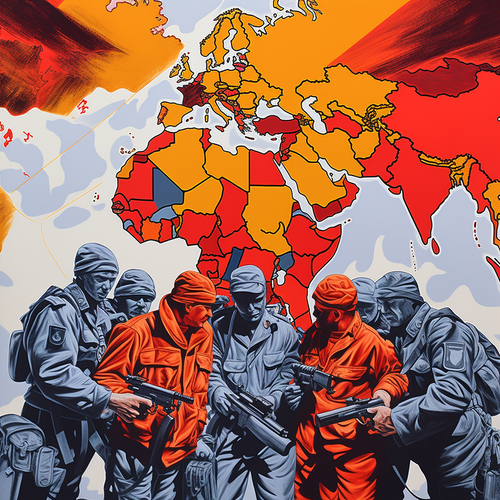As an uneducated investor, I'm constantly assessing global economic trends and geopolitical developments to understand their investment implications. Here are some of my recent thoughts as I ponder the mounting uncertainties facing markets.
Decoupling from China Overstated
The commentary I hear on China veers between extremes, depicting it as either unstoppable or collapsing. The real picture is more complex. China's reopening wasn't the consumption boom some expected, but its economy remains resilient.
China has built massive trade surpluses, nearing $1 trillion annually. This reflects major advances in moving up the value chain in industries from autos to solar panels. Much of this growth comes from trade with emerging markets, increasingly settled in non-dollar currencies. China is reducing its dependence on US consumers.
Talk of "deglobalization" also misses the mark from my perspective. Rather than global trade shrinking, we are seeing a "de-sinification" as supply chains shift from China to Vietnam, Mexico and elsewhere. But total emerging market trade keeps growing. For me as an investor, this means opportunities in emerging markets beyond just China.
The Russia Factor
Russia's exclusion from dollar-based trade is speeding up broader "de-dollarization" efforts by major commodity producers. With Russia now accepting local currencies, key importers like India can bypass dollars for energy and commodities.
Meanwhile, the BRICS alliance keeps expanding, recently inviting Saudi Arabia to join. BRICS nations openly discuss settling energy trade in local currencies or gold. With the top oil producers and importers involved, a shift here could reshape the global financial landscape.
Amidst these changes, Russia may look to weaponize energy supplies this winter. With US and UK elections approaching, spiking fuel costs could sway outcomes to Russia's benefit.
If Russia cut oil exports by 50%, prices could double without denting its revenues. Stockpiling by China suggests potential coordination. With western inventories low, shutting flows for months could upend economies. Saudi Arabia and UAE have minimal scope to offset losses given diminished spare capacity.
False Hopes in Alternatives
Hopes that alternatives like wind and solar would ensure western energy security have proven fanciful from my vantage point. Hundreds of billions invested have barely moved the needle on fossil fuels' dominance. The outperformance of alternative energy stocks has dramatically reversed as this reality sets in.
In response, I'm seeing a decisive shift toward nuclear power. Its past stigma is disappearing as nations recognize realistic pathways to carbon reduction and energy independence. This zeitgeist shift further supports a repricing of energy markets.
Key Takeaways
-
China retains economic vibrancy despite real estate wobbles. Its trade surpluses approach the scale of top 20 economies.
-
"Deglobalization" masks ongoing emergence of new trade axes outside western orbits.
-
Russia's positioning amplifies de-dollarization and risks of energy supply disruptions.
-
False hopes in alternatives are giving way to nuclear's revival as a critical energy solution.
As energy and geopolitics reshape markets, I believe portfolios need to shift decisively to the new realities. With policy headwinds persisting, energy offers a potent hedge from my perspective. Brewing supply risks could make the sector pivotal for resilience.

